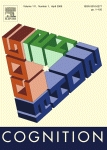 Between 1991 and 1995, I was part of a research program on communication, inference and decision making led by Dan Sperber at the Ecole Polytechnique in Paris. The dominant view at the time was that human reasoning and decision making were fundamentally faulty: instead of being reached logically by applying inferencial rules to the starting premisses, conclusions came from hints, intuitions and mental shortcuts that used the most ready available information, associations and least effort paths.
Between 1991 and 1995, I was part of a research program on communication, inference and decision making led by Dan Sperber at the Ecole Polytechnique in Paris. The dominant view at the time was that human reasoning and decision making were fundamentally faulty: instead of being reached logically by applying inferencial rules to the starting premisses, conclusions came from hints, intuitions and mental shortcuts that used the most ready available information, associations and least effort paths.
In a series of experiments based on the “selection task”:
people are introduced to a pack of cards that had a letter on one side and a number on the other side following the letter-number combination rule “if there is a vowel on one side of the card, then there is an even number on the other side of the card”. Presented with four cards, showing a letter A, a letter D, a number 4 and a number 7, people are asked to indicate the cards that need to be turned over to verify if the combination rule was true or false. People overwhelmingly chose either card A only or card A and 4, thus making a logical mistake.
we manipulated the context to make the interpretation of the rule as ruling out a combination of vowel and odd number more readily available. People switched to choosing cards A and 7. We demonstrated that reasoning proceded logically and dependend on the way premises were interpreted. Reasoning and decision making are a combined function of inferential and pragmatic processes.
The article Relevance theory explains the selection task written with Dan Sperber and Vittorio Girotto appeared in the scientific journal Cognition (57 (1995) 31-95).
